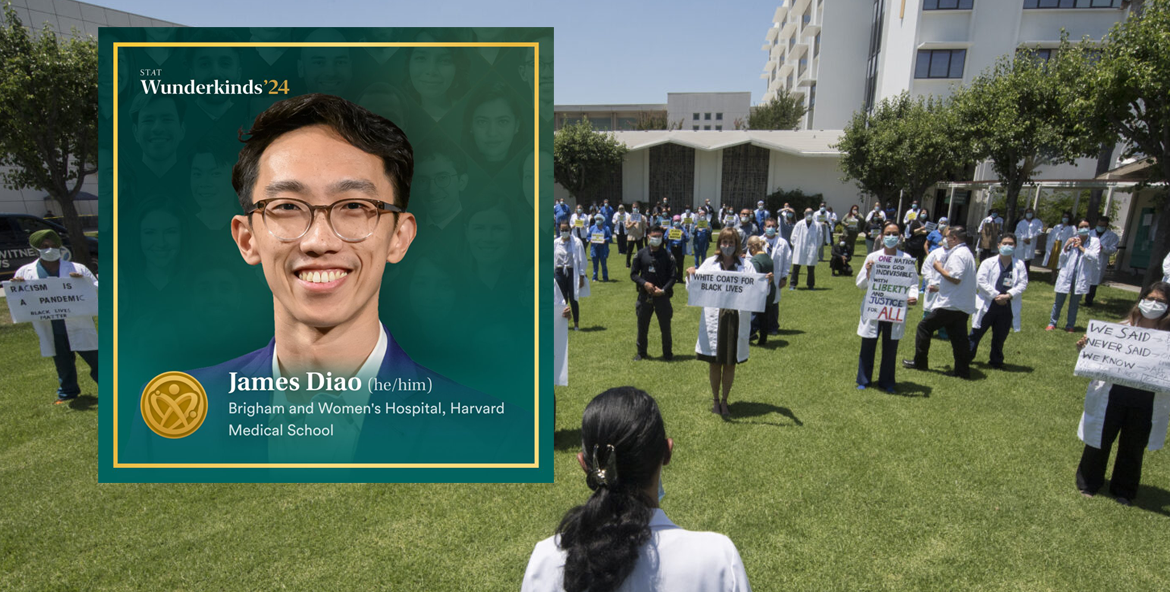
Excerpt:
When the murder of George Floyd in 2020 ignited calls for racial equity across the U.S., the field of medicine confronted its own thorny questions about race. James Diao, then a medical student at Harvard Medical School [and now a Berkowitz Family Living Laboratory Postdoctoral Research Fellow], was among the many people who zeroed in on one particular issue: If race is a social construct, why was it a factor in clinical tools used to determine a patient’s risk of disease?
“These big questions were really fundamentally not just scientific problems, but also human and moral problems about how values are incorporated into these seemingly dispassionate tools that we use,” said Diao, whose papers analyzing the impacts of race and its removal from clinical calculators have since played a role in policy decisions that touch millions of patients. “I became really, really obsessed with this idea of what kind of assumptions we’ve baked into these calculators.”
As the health care system continues to grapple with the role of race in many other clinical tools, Diao’s work on the subject has modeled how to balance a quantitative approach to the issue with the perspectives of patients, advocates, and policymakers. Now a resident at Brigham and Women’s Hospital and one of STAT’s 2024 Wunderkinds, Diao’s career has been shaped by his willingness to listen.
“The more I’ve learned, the more I’ve realized there’s more to learn,” he said.
When the pandemic hit, Diao had already been working with Arjun Manrai, an assistant professor of biomedical informatics at Harvard Medical School, since he was a college sophomore studying statistics and biochemistry. Manrai, who recruited Diao once he began his medical training at Harvard, investigates how clinical algorithms work — and fail — when they’re applied in different populations. As the two were cooped up at home, they started delving into the different ways that hospitals at the time were adjusting their calculators for kidney function, known as eGFR, to remove race.